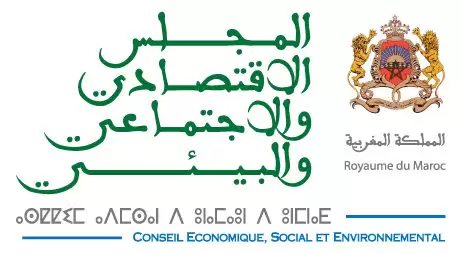
The ESEC’s own-initiative opinion, «Unlocking the Potential of Human Capital at Work» delves into a complex and multifaceted issue that is of paramount importance for our country’s sustainable development. Through an innovative and visionary approach, the opinion identifies the best paths to boost human capital, foster knowledge sharing, develop innovative skills, and increase adaptability in response to constantly shifting labor market trends.
The ESEC’s own-initiative opinion, «Unlocking the Potential of Human Capital at Work» delves into a complex and multifaceted issue that is of paramount importance for our country’s sustainable development. Through an innovative and visionary approach, the opinion identifies the best paths to boost human capital, foster knowledge sharing, develop innovative skills, and increase adaptability in response to constantly shifting labor market trends.
This opinion was developed through an inclusive and collaborative process, with productive debates among all stakeholders, including the Council constituent categories. Valuable insights were also gathered through hearings with key actors and feedback from citizens via the Council’s digital platform «ouchariko.ma».
Over the past two decades, Morocco has dedicated substantial effort to improving its human capital through a range of educational and social initiatives. These sustained efforts have yielded remarkable progress in key areas such as education, health, poverty reduction, income growth, social and economic integration, skill development, and job opportunities. Although Morocco has made significant strides in human capital development, obstacles impede the full release of human capital’s potential in terms of productivity and creativity. These limitations significantly impact its optimal contribution toward economic development and the country’s competitiveness. One notable example is the country’s relatively low labor productivity growth rate of approximately $25,402 in 2019, which lags behind countries such as Tunisia ($36,017), Egypt ($43,930), and Turkey ($82,049).
Several factors influence this situation, such as the prevalence of informal and unskilled jobs in the private sector and the high incidence of precarious employment in rural areas. Moreover, the unappealing work environment in the public sector, including salary and limited opportunities for career advancement, has contributed to reduced productivity and innovation. The challenges facing lifelong learning, particularly vocational training, are further compounded by underfunding, ineffective governance, and partial digitalization.
Furthermore, Morocco faces a significant challenge in attracting and retaining its skilled workforce. According to the Global Talent Competitiveness Index, Morocco ranks 96th out of 133 countries in 2022 and second in the MENA region regarding brain drain. Consequently, many highly qualified individuals struggle to find suitable employment opportunities or a supportive work environment that values their skills, provides inspiration, and offers genuine merit-based career advancement.
In light of this situation, the ESEC maintains that Morocco’s path to achieving sustainable, equitable, and responsible development relies on giving utmost importance to developing and acknowledging its human capital. With this objective in mind, the Council recommends the following key measures:
- Establish a comprehensive system for skill growth and lifelong learning that enables individuals to refine their skillset, gain expertise in emerging fields, update their knowledge, and participate in ground-breaking and development-focused initiatives.
- Improve human resource management practices across public and private sectors by fostering recognition, motivation, merit-based progression, supportive actions, and transparent performance assessment.
- Expand the scope of the skill recognition system to include the skills and know-how individuals acquire from personal and professional pursuits that transcend traditional formal education programs.
- Reassess the current mechanisms for funding private training agreements to overcome the barriers that hinder companies from taking advantage of this system.
- Introduce a personalized training account system that provides employees with access to training and the autonomy to select programs and modules that align with their skills and aspirations.
- Introduce social labeling to distinguish companies that incorporate positive practices in decent employment, human resource management, recognition, and corporate social responsibility (CSR).
- Strengthen employee protection against all forms of workplace violence and harassment (including sexual harassment) by ratifying the International Labour Organization (ILO) Convention (No. 190) on Eliminating Violence and Harassment in the World of Work.
- Initiate a dialogue among various stakeholders to explore the optimal approaches to adjust and enhance resilience amidst the ever-evolving workforce landscape, including the regulation of novel work arrangements such as remote work, coworking, and digital work platforms.




